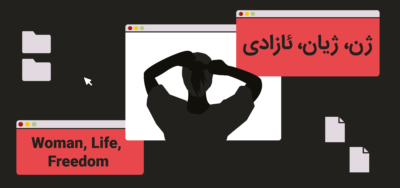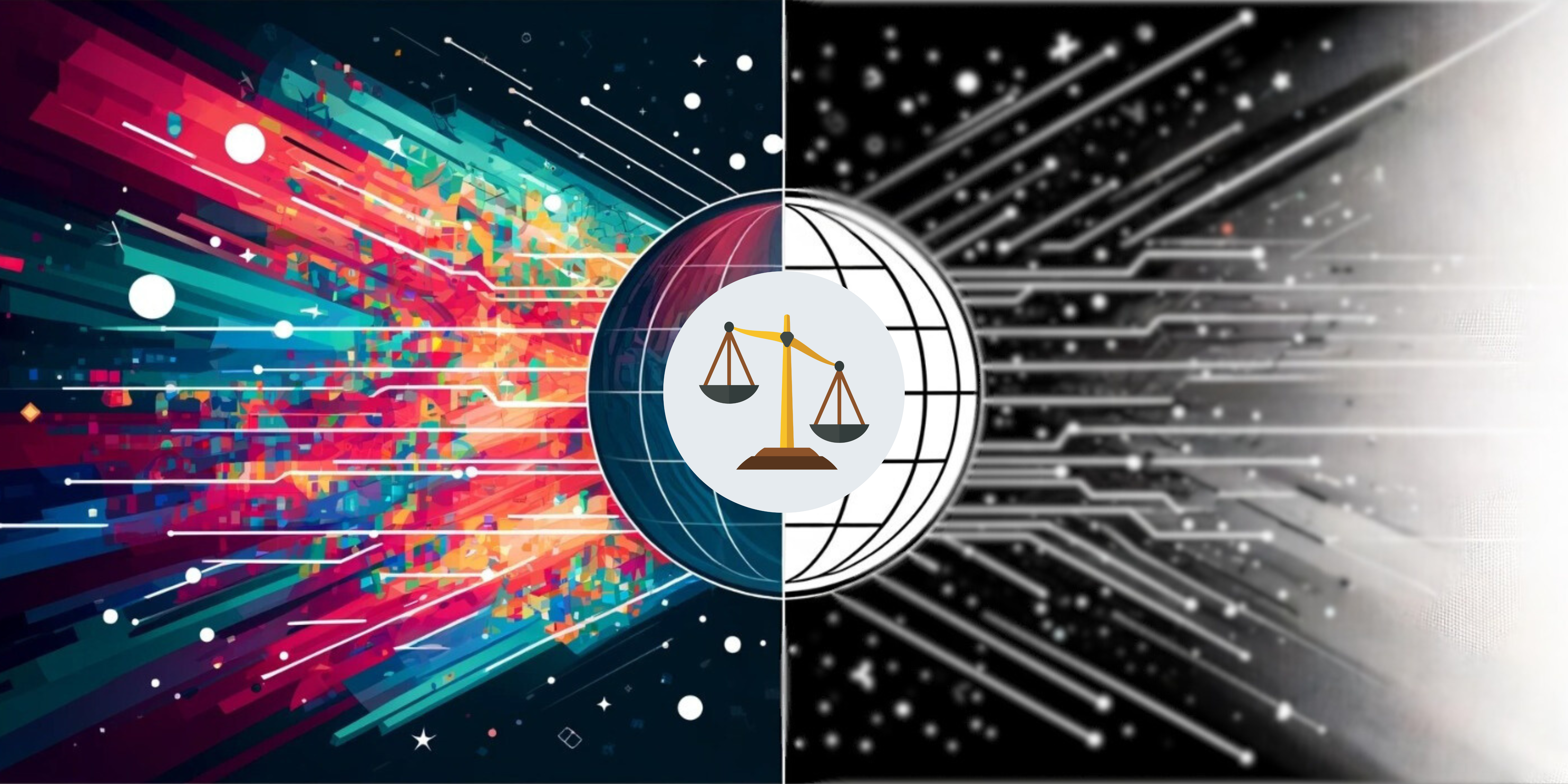Following internet shutdowns and disruptions with the aim of cracking down on protestors, we witnessed Internet Service Providers be pushed towards insolvency from the severe financial strain of these shutdowns. Internet policy analysis from December reveals that the Iranian government’s response to addressing these challenges has been to speed up Iran’s internet localization project.
Despite past efforts to create domestic social media platforms, it appears that in the aftermath of the government blocking one of the last major international social media platforms, Instagram, in September, the need for an alternative platform is now becoming one of the biggest priorities. These efforts to create domestic social media platforms have not been met with much success and yet on 5 December the Iranian tech news Digiato reported that the “Asia Media Research Development System,” the developer of the domestic messaging app “Gap” has created a new social media platform known as “Virasti” (Persian: ویراستی) or “Editorial” in English, said to have similar functions to Twitter.
Other domestic platforms projects, including messaging apps, have also so far had limited success in attracting users organically despite receiving financial and other types of support from the government. Additionally, the rising number of domestic messaging apps has meant that users are not going to use all the various domestic messaging apps. In response to this challenge the ICT Minister Eisa Zarepour announced that the ICT Ministry is working on a plan to connect the messaging apps together to make them interoperable.
In an interview on 24 December Zarepour stated that “the number of domestic messaging apps is both an opportunity and a threat. It is an opportunity because everyone has a choice. The threat is that not everyone can be on all the platforms to communicate with everyone. To solve this problem, we will link them all together.”
The enforcement of the use of domestic apps began when the introduction of an internet price policy reduced the cost of domestic internet traffic at 30% to 50% lower than international traffic for users, ending net neutrality in Iran to entice users onto domestic services and platforms. In line with this policy, those using the Iranian card system “Shahparak” (Persian: شاپرک- شبکه پرداخت کارتی) have been forced to move to .ir domain names. The company providing .ir services, “Irnik ” requires to verify users. In other words, authorities do not just want to control all digital content in Iran, but also to restrict anonymity online.
In our September Network Monitor, we wrote that with the aim of controlling all modes of communications, the government, via Iran’s Computer and Video Games Foundation ordered that all games with chat functions be paused so that the chat function could be disabled, or failing which, become blocked. As a result, games such as Clash of Clans and Xbox games were blocked. Appeasing this section of society is especially important for the government. During his presidential campaign, the current President, Ebrahim Raisi commented that “I asked kids that you are playing children’s and teenage games, how upsetting is it in the middle of the game? It is clear that the infrastructure is not good,“ referring to the quality of the internet.
In the same vein, and with the aim of increasing control over computer games in Iran, 150 popular computer games transferred the CDNs to inside the country.
The overall policies stated above show that localization policies are taking off in full force, catalyzed by recent events, therefore we should expect to see further developments in this area in the very near future.
The ICT Minister Removes Private Sector Representative from the Regulatory Commission
According to domestic news outlets, from 4 December the makeup of the Regulatory Commission at the Communications Regulatory Authority changed to include new members such as Rasool Jalili, member of the Supreme Council for Cyberspace and Head of Sharif University, Mohammad Khonsari, Head of the Information Technology Organisation (ITO), and Hossein Naamati, the former Head of Iran’s Post Services. Meanwhile, the only representative from Iran’s private tech sector, Shahad Javanmardi, the Managing Director of Fanap Holding, was removed from the Commission as instructed by the ICT Minister, Eisa Zarepour.
IPhone 14 Registration in Iran Remains Uncertain
On 10 December ISNA reported that iPhone 14 devices still cannot be registered with the authorities in Iran. The mobile phone registration scheme was introduced to clamp down on “mobile phone smuggling” and involves the registration of a mobile phone’s International Mobile Equipment Identity (IMEI) number with a government trade body either online or in-person. Should mobile phone users fail to register their mobile phones within 30 days, they will not be able to use their phones.
New Bill Proposed to “Combat Fake News” Online
According to the Iranian tech news website Digiato on 19 December the Spokesperson for the Parliamentary Legal and Judicial Affair Commission, Kazem Delkhosh, stated that the Commission is preparing a bill aimed at tackling “fake news” online, designed to impose heavy penalties for those perceived to be producing or publishing “fake news.” Such legislation under authoritarian governments can also be used to silence dissidents, activists, and crack down on any content critical of the government. There is already a resolution passed by the Supreme Council for Cyberspace to combat “fake news” which also called for legislation to be introduced on the topic.
Expediency Discernment Council to Review the Draft “General Policies for Cyberspace”
On 4 December Iran news agency ISNA reported that the draft “General Policies for Cyberspace” have been passed to the Science, Culture, and Social Commission at the Expediency Discernment Council for review.
Details on Iran Working With South Korea and Russia on ICT Related Projects
On 3 December the Head of the Centre for Specialized Cooperation and international Strategic Studies, Behzad Ahamadi reported details of plans for Iran’s cooperation with Russia and South Korea on data transits, market expansion for Iran’s private sector, and the possibility for space related cooperation, however, no agreement has been signed between the countries as yet.

Iran’s “State Backed Hackers” Target Human Rights Watch and other Activists and Journalists Outside Iran
On 5 December Human Rights Watch reported that their investigation, conducted jointly with Amnesty International’s Security Lab had found that a phishing attack by an entity affiliated with the Iranian government known as APT42 and sometimes referred to as Charming Kitten targeted two Human Rights Watch staff members and at least 18 other high-profile activists, journalists, researchers, academics, diplomats, and politicians working on Middle East issues. At least three people had their email and other sensitive data compromised.
Iranian Government Official Claims that a DDoS Attack on a Domestic Messaging App was Intercepted
On 25 December Amir Lajevardi, the Head of Iran’s Telecommunications Infrastructure Company (TIC) claimed that a DDoS attack “originating from outside the country,” on an unnamed domestic messaging app was intercepted.
Bill Proposed by Majles for Fiber Optic Expansion
On 5 December the Parliamentary Industry and Mines Committee approved a Bill that aims to centralize the funding for expanding fiber optic projects. The Bill will now progress to a vote by Majles.
Record Use of Domestic Internet Traffic Registered in Iran According to Government Official
In an interview with ISNA on 30 November Amir Lajevardi, the Head of Iran’s Telecommunications Infrastructure Company (TIC) claimed that during the Iran vs US World Cup football match, Iran’s domestic traffic reached a record 6 TBps.






